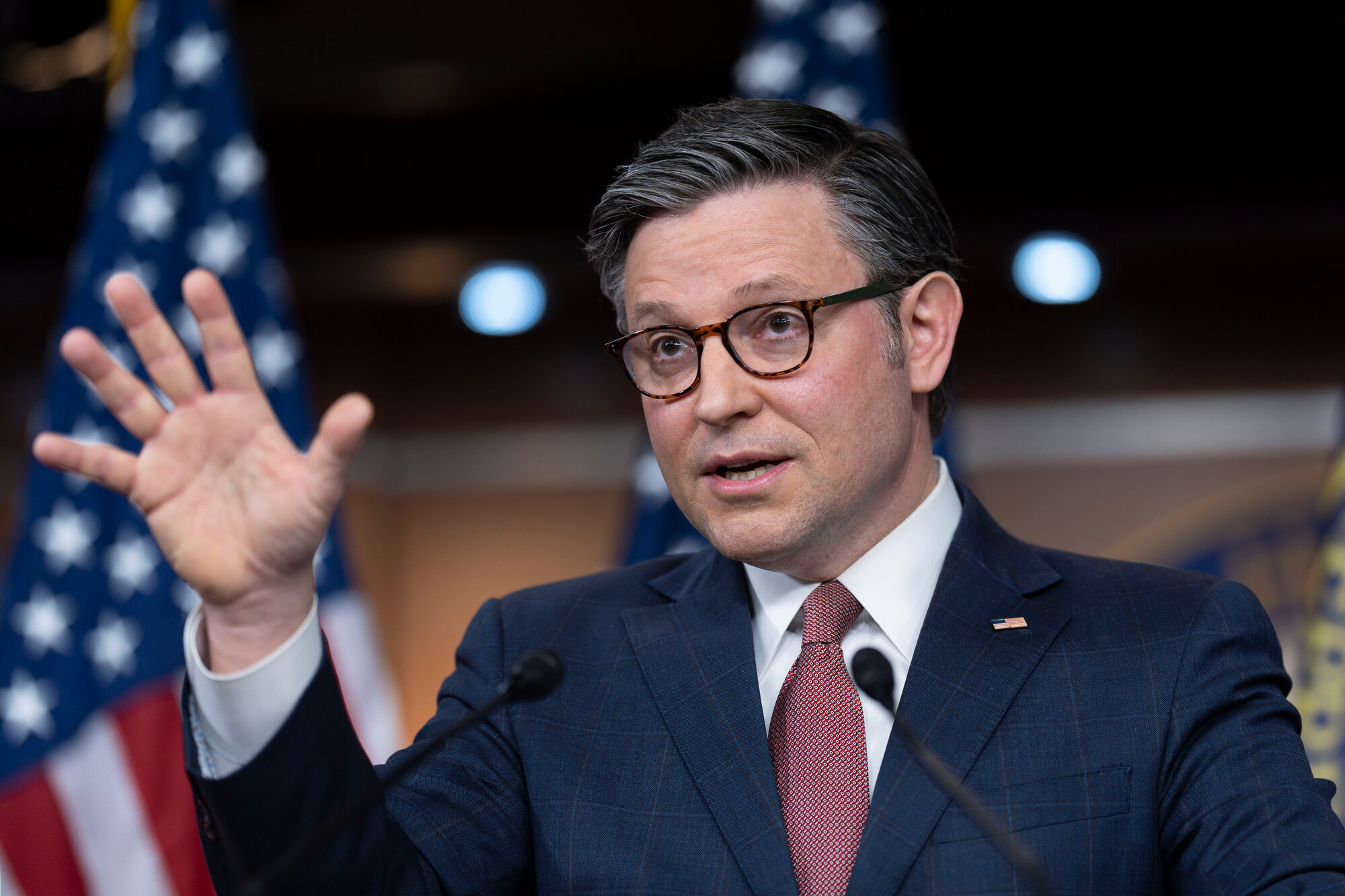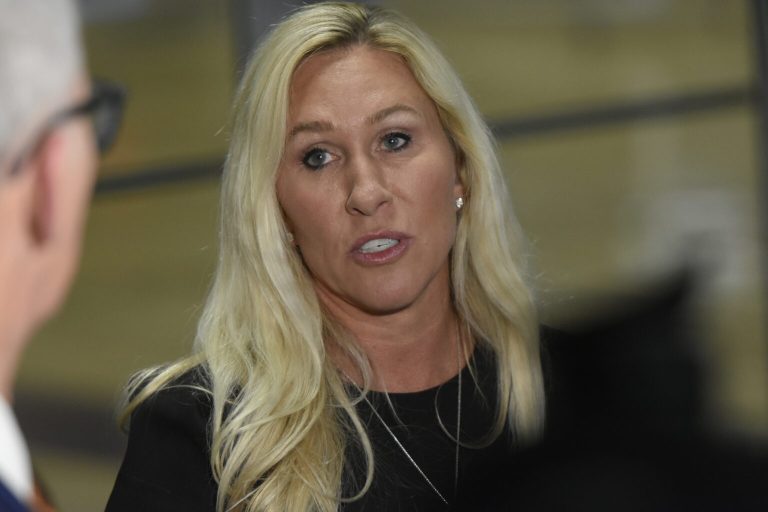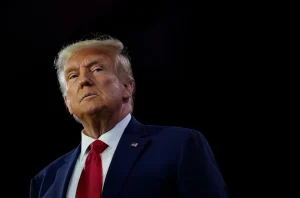House Speaker Mike Johnson (R-La.) held a press conference in Washington on Thursday, providing insight into what he perceives as a shifting political landscape within the Democratic Party. The press conference, which attracted significant attention from observers across the political spectrum, came in the wake of a series of high-profile retirements by senior Democratic lawmakers.
Johnson, who has led the House of Representatives since taking office earlier this year, began by acknowledging the long-standing influence that the Democratic Party has had in shaping national policy. He noted that, over the decades, the party has consistently played a role in advancing legislation on healthcare, infrastructure, education, and social welfare programs. However, he emphasized that the recent wave of departures by senior Democrats may indicate a change in the internal dynamics and ideological orientation of the party.
“The Democratic Party has been a broad coalition for decades,” Johnson said. “It has historically encompassed a range of voices from moderates to progressives. But when we see a number of long-serving members leaving at the same time, it raises questions about who is setting the agenda for the future.”
According to Johnson, the departures reflect a growing influence of more radical voices within the party’s leadership ranks. He suggested that these shifts may impact not only legislative priorities but also the party’s ability to attract a wider base of voters in upcoming elections. He argued that a political party increasingly dominated by extreme positions may struggle to resonate with centrist and independent voters.
“These retirements are not just personnel changes,” Johnson said. “They are a signal. They show that the party may be moving toward positions that are more ideological and less pragmatic. That shift has consequences for governance and for the American people, who depend on both parties to find solutions to real problems.”
During the press conference, Johnson also spoke about the broader implications of these retirements on congressional dynamics. He highlighted that the absence of experienced lawmakers could leave a gap in institutional knowledge and legislative expertise. These lawmakers, he explained, often serve as mentors to younger members, helping guide them through the complex process of drafting legislation, negotiating bipartisan agreements, and navigating procedural rules in Congress.
“When seasoned members leave, it is not just a loss of votes,” Johnson noted. “It is a loss of wisdom, relationships, and experience. These are the individuals who have spent decades understanding the nuances of policymaking and who often bridge the divides between differing perspectives.”
Johnson further argued that the departure of moderate and senior Democrats could create opportunities for the Republican Party to expand its influence in the House. He suggested that a shift toward more ideologically extreme positions within the opposition could alienate key constituencies and open the door for more balanced policy proposals to gain traction.
“In politics, change creates opportunity,” Johnson said. “If one party narrows its focus to a particular ideological agenda, it becomes easier for others to present alternatives that appeal to a broader segment of the electorate. This is the essence of democratic competition.”
While Johnson did not single out individual lawmakers, he referenced a pattern of exits from the House by legislators who had served multiple terms and who were considered part of the party’s traditional leadership. He emphasized that the cumulative effect of these retirements could reshape the legislative landscape for years to come, influencing committee assignments, policy priorities, and even the party’s approach to upcoming midterm and presidential elections.
Johnson also addressed the potential consequences of these changes for bipartisan cooperation. He argued that as parties become more ideologically homogeneous, the willingness to negotiate and compromise tends to diminish. This, he warned, could exacerbate gridlock and hinder the passage of legislation on critical issues affecting the nation, from infrastructure development to public health initiatives.
“We have seen throughout history that effective governance depends on dialogue, negotiation, and compromise,” Johnson said. “When parties move to extremes, it becomes increasingly difficult to find common ground. That is a concern not just for lawmakers, but for the citizens who rely on their government to function.”
The House Speaker’s comments came amid broader discussions about the evolving identity of the Democratic Party. Analysts have noted that, in recent years, the party has experienced internal debates over key issues such as healthcare reform, climate policy, taxation, and social programs. Johnson’s perspective underscores a concern among some Republicans that the Democratic Party may be moving toward positions that could alienate more moderate voters, particularly in swing districts and states with a diverse electorate.
In addition to legislative concerns, Johnson touched on the political messaging implications of the retirements. He suggested that an increased presence of radical voices within the Democratic Party could influence campaign strategies, fundraising priorities, and voter outreach efforts. By framing the departures as a turning point, Johnson emphasized that political narratives are shaped not only by policy debates but also by the perception of who controls party direction.
“Every time a prominent figure leaves a party, it sends a signal,” he said. “It communicates to voters, donors, and activists about who is in charge and what the party stands for. These signals matter as much as the legislation itself, because they shape expectations and influence engagement at all levels of the political process.”
Johnson concluded his remarks by reiterating his belief that the Republican Party is well-positioned to capitalize on these developments. He emphasized a commitment to advancing policies that he described as practical and inclusive, contrasting them with what he perceives as increasingly ideological priorities emerging among Democratic leaders.
“Our focus remains on delivering results for Americans,” Johnson said. “We intend to engage constructively with anyone willing to work toward solutions, but we will also highlight where extremism and rigid ideological positions fail to address the real needs of the country. That is our responsibility as leaders.”
Observers noted that Johnson’s statements reflect a broader strategy of framing the political landscape in terms of ideological contrasts. By emphasizing the departure of experienced Democrats and the rise of more radical voices, he seeks to position his party as the pragmatic alternative capable of governing effectively. Whether this framing will resonate with voters in the coming election cycles remains to be seen.
While some critics argue that Johnson’s characterization may overstate the influence of retiring lawmakers, others contend that his perspective highlights genuine challenges facing a party in transition. As political dynamics continue to evolve, the impact of these retirements on both policy and electoral outcomes is likely to be closely scrutinized by analysts, voters, and party officials alike.
In the coming months, both parties will face a series of critical votes, primaries, and strategic decisions. Johnson’s comments serve as a reminder that changes in leadership, experience, and ideology within any party can have far-reaching consequences for legislative priorities, political alliances, and the broader functioning of the federal government.
As the political landscape continues to shift, Johnson’s remarks underscore the ongoing interplay between party dynamics, ideological direction, and the responsibilities of elected officials to balance internal priorities with the needs and expectations of the American public.

Emily Johnson is a critically acclaimed essayist and novelist known for her thought-provoking works centered on feminism, women’s rights, and modern relationships. Born and raised in Portland, Oregon, Emily grew up with a deep love of books, often spending her afternoons at her local library. She went on to study literature and gender studies at UCLA, where she became deeply involved in activism and began publishing essays in campus journals. Her debut essay collection, Voices Unbound, struck a chord with readers nationwide for its fearless exploration of gender dynamics, identity, and the challenges faced by women in contemporary society. Emily later transitioned into fiction, writing novels that balance compelling storytelling with social commentary. Her protagonists are often strong, multidimensional women navigating love, ambition, and the struggles of everyday life, making her a favorite among readers who crave authentic, relatable narratives. Critics praise her ability to merge personal intimacy with universal themes. Off the page, Emily is an advocate for women in publishing, leading workshops that encourage young female writers to embrace their voices. She lives in Seattle with her partner and two rescue cats, where she continues to write, teach, and inspire a new generation of storytellers.









